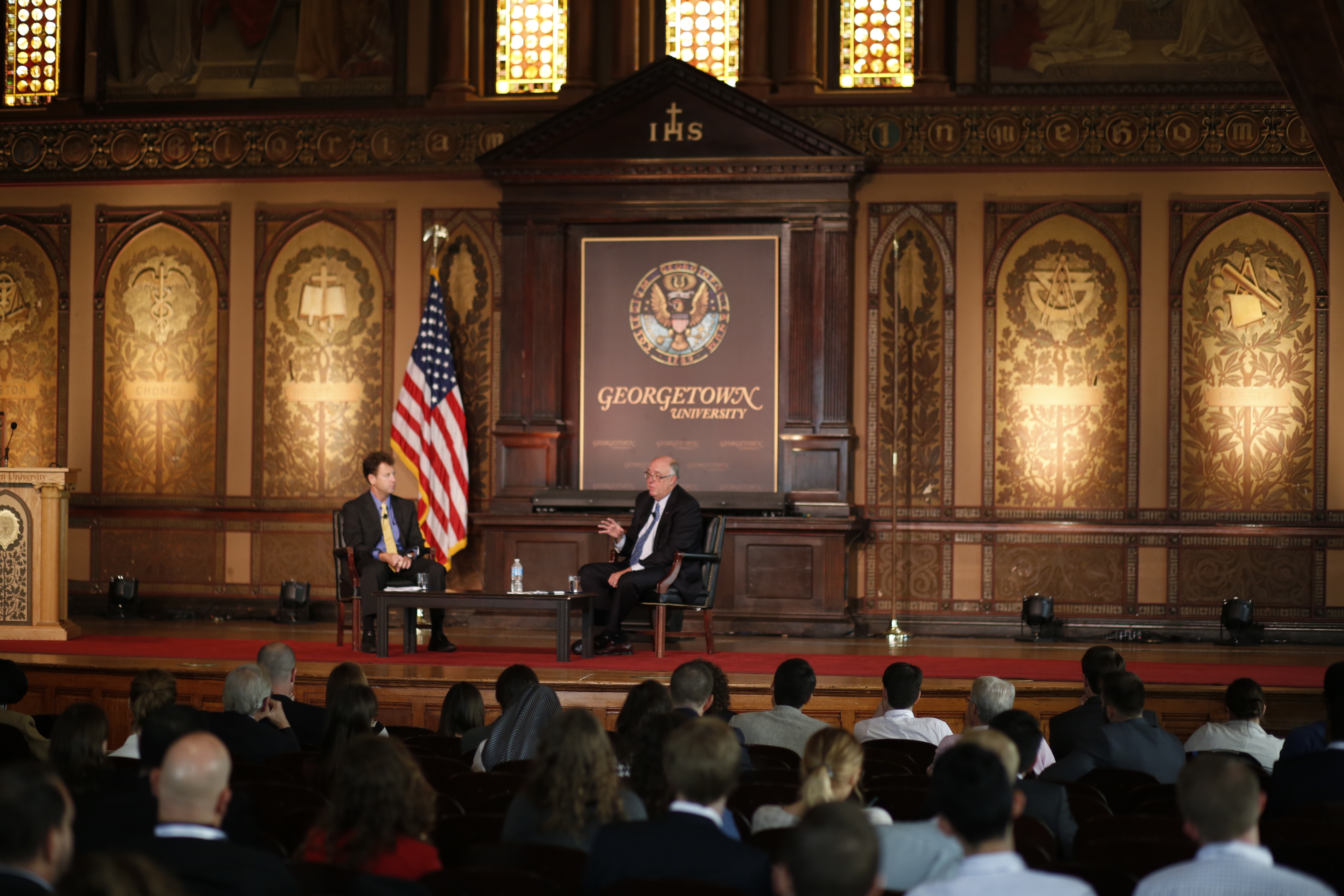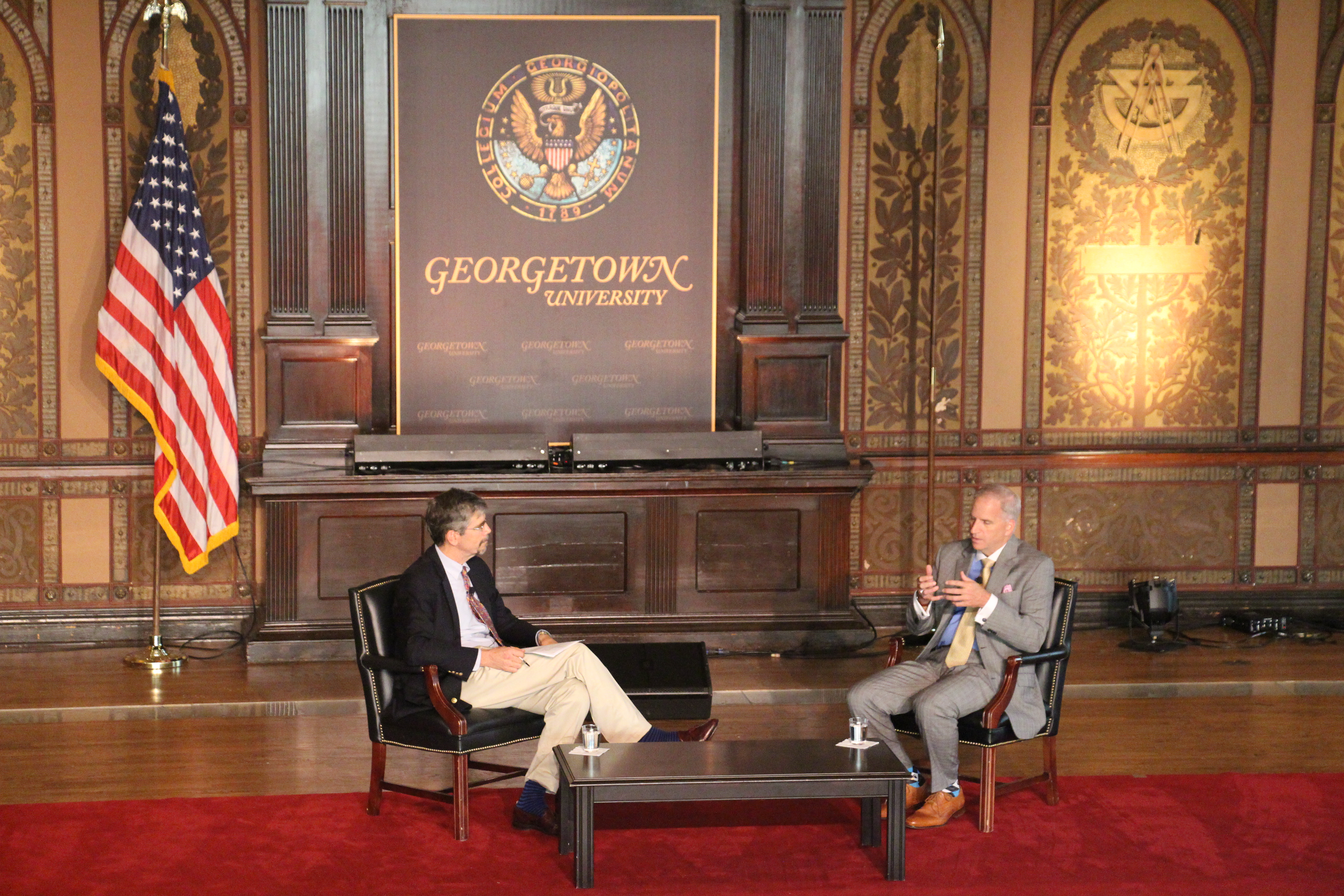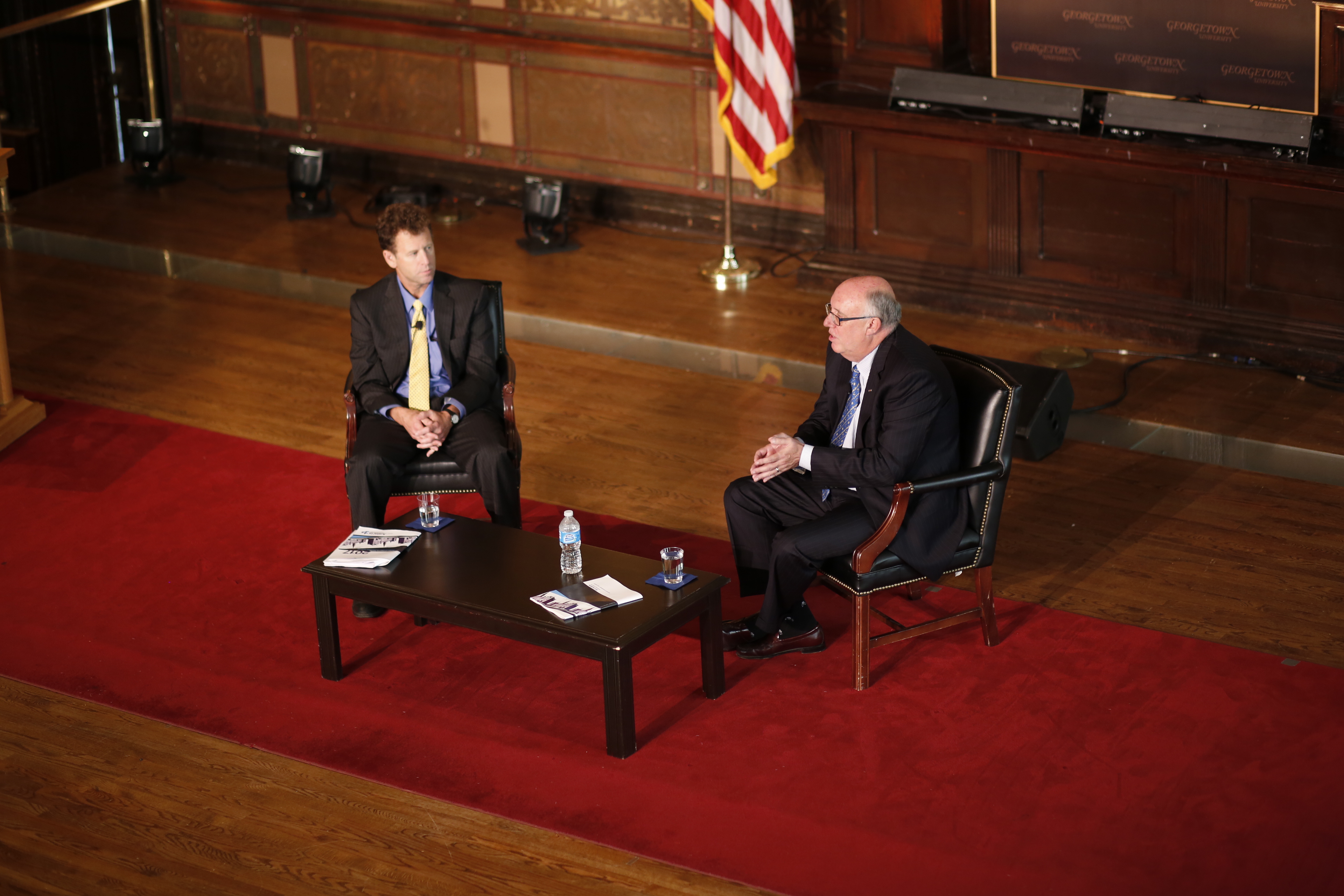
Georgetown University and the National Geospatial Agency (NGA) hosted the fourth annual Kalaris Intelligence Conference at Gaston Hall September 14. The event featured leading scholars and practitioners representing the breadth of the intelligence field who offered their thoughts on notable paradigm shifts defining the future of intelligence.
Chief among those shifts are the advent of ‘big data,’ the potential of multilateral public-private partnerships, and the demands of counterterrorism. Panels and keynote conversations throughout the day ranged across each of these topics.
“In the true spirit of Georgetown, devoted to intergroup interaction, dialogue, discussion, this is an intersectoral meeting that will help us all,” Provost Robert Groves said in his opening remarks.
“We live in a world with dramatic changes happening every day,” he continued, “ and old institutions have to be much more nimble than they ever were before.”
Government Partnerships

The first keynote of the day was given by Robert Cardillo (SSP’88), Director of NGA, in conversation with New York Times senior writer Eric Schmidt. Cardillo emphasized the evolving responsibilities of NGA as it adapts to the requirements of the world around it.
“We need to apply our capabilities in ways that inform those that rely upon us, the decision-makers that need to understand threats and opportunities,” Cardillo said, “but we also need to be able to evolve and modernize our profession in a way that accommodates the realities of the technology development of the world, of the flattening of the landscape with respect to capabilities.”
One potential way forward is public-private partnerships that join government resources and data with private sector expertise and research in areas like artificial intelligence, computer vision, and automation of analysis. Cardillo stressed that such a partnership must be conducted “fairly and openly.”
Intelligence: A Science and a Poetry
Bruce Riedel, a senior fellow and director of the Brookings Intelligence Project with 30 years of intelligence experience at the CIA, was joined for the lunchtime keynote by moderator Dr. Michael O’Hanlon, a senior fellow in Foreign Policy at the Brookings Institution. Riedel and O’Hanlon discussed the future of war against terrorism in the Middle East.

Although he argued that the world is not yet seeing a paradigm shift in terrorism and counterterrorism, Riedel explained that the failing epicenter of leadership of Al Qaeda demonstrates that the organization is not indestructible. However, he reasoned that the acute level of terrorism the world is facing today is likely to continue for three reasons: the rising number of failing states in the Islamic world serving as incubators to terrorists; the intensification of the sectarian struggle between Sunni and Shia Islam; and the reversion to authoritarian government in the Islamic world since 2011.
“The Islamic world has made a significant reversion to authoritarianism in the last five years. [Leaders] have made even more ruthless authoritarian states, and what that translates into is that there is no space for political dialogue or for dissent. In a country like Egypt or Saudi Arabia, you are either with the regime or you are with the jihad. There’s no space in between anymore, and that in the long run is going to be one of the greatest breeders of global terrorism.”
Riedel discussed the unique cases of counterterrorism in Pakistan, Saudi Arabia, Iraq, Syria, and Afghanistan. He argued that the overarching rule in all of these cases is that, while big data is an enormous aid to the analysis of strategic trends, in the business of counterterrorism, it is still critical to have American intelligence on the ground.
“A very good Israeli friend of mine once said to me, ‘The art of intelligence is not a science. It’s poetry. It’s very hard to find poets these days.’”
Towards the Future
Dr. Suzanne Fry gathered the topics of the conference into a narrative on the future of intelligence to close the day. Fry, the director of the National Intelligence Council’s (NIC) Strategic Futures Group, discussed the findings of the most recent Global Trends report, an assessment of strategic trends and uncertainties offered to each incoming U.S. presidential administration by NIC.
The 2017 Global Trends report, available to the public, lays out a narrative centered around the “paradox of progress,” where a growing number of actors and voices contribute to an increasingly complex landscape.
“Recent and future trends are converging to proliferate the number of actors and issues and to fracture the information environment,” Fry said. “In turn those developments are making it much more difficult for governments to govern and cooperate with each other, putting a premium on the quality of policy choices as well as efforts and investments into resilience in order to manage shocks in the future.”
Factors such as technological progress, environmental changes, and global economic shifts all contribute to an evolving world that will shift intelligence priorities, necessitating cooperation from all sides.
“The world that we’re entering into is going to require partnerships that go far beyond state-to-state,” Fry said. “It’s going to require public to private cross-domain type partnerships, but also partnerships that straddle different levels of hierarchy–the elite level down to local levels.”
The Kalaris conference is made possible in part by the generosity of the George T. Kalaris Intelligence Studies Fund. For a full agenda of the conference and speaker biographies, click here.